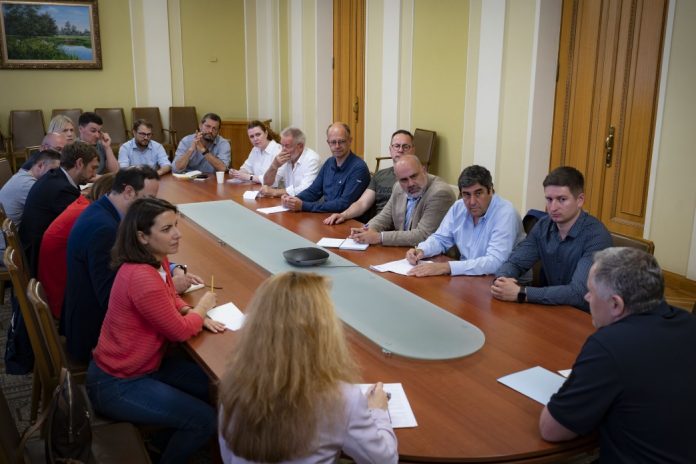On June 11, Deputy Head of the Office of the President of Ukraine Ihor Zhovkva met with a delegation of the informal international network United for Ukraine, which included representatives of the national parliaments of Lithuania, Germany, Italy, Portugal, Sweden and Spain.
Ihor Zhovkva noted the efforts of the association, which now has more than 280 former and current deputies and high-ranking officials from more than 30 countries, to promote the Ukrainian agenda both within the authorities and societies of their countries and internationally.
The Deputy Head of the Office of the President briefed European politicians on the current security situation in Ukraine. He expressed hope that foreign parliamentarians would continue to make every effort for their countries to promptly supply the weapons Ukraine needs, as well as to impose sanctions on Russia.
The issue of granting Ukraine the status of a candidate for EU membership during the European Council meeting on June 23-24 this year was discussed separately.
“It is gratifying that all the deputies present here, even from Germany, support granting Ukraine the status of a candidate for EU membership already in June. The adoption of such a formal decision at the upcoming meeting of the European Council is the key to the victory of our country in the war against Russia,” said Ihor Zhovkva.
Ihor Zhovkva praised the network’s efforts to rebuild Ukraine, as well as its proactive role in bringing the Russian military to justice for crimes committed in Ukraine. In this context, he called on the parliaments of the member states to call things by their names and recognize Russia’s crimes in Ukraine as genocide of the Ukrainian people, and Russia as a state sponsor of terrorism.
“This is not only a question of historical justice, but also an important legal basis for the activities of the postwar international tribunal,” said Ihor Zhovkva.

